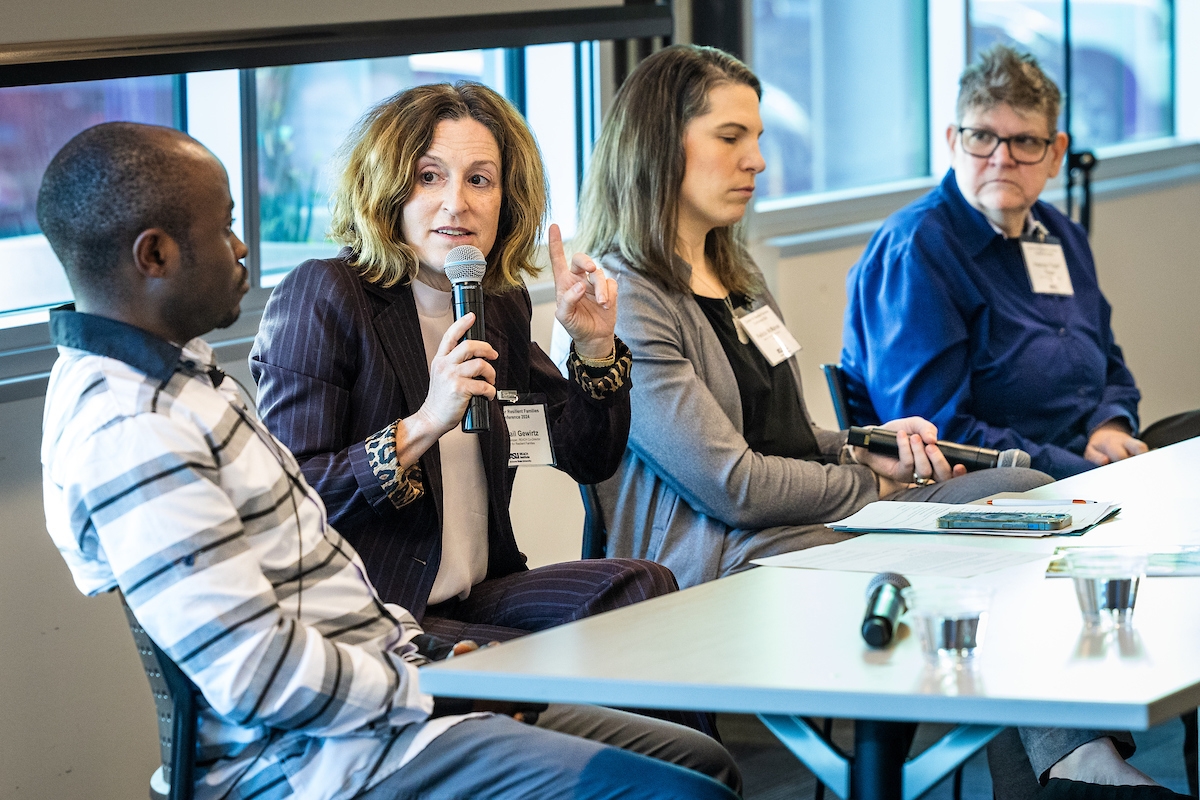Childhood trauma may not always be preventable, but involving parents in their children’s recovery process has proven to enhance mental health outcomes. Despite the existence of numerous intervention initiatives, only a handful have gained widespread adoption.
The REACH (Research and Education Advancing Children’s Health) Institute at Arizona State University’s Center for Resilient Families is dedicated to introducing these scientifically validated interventions to families and children to bolster resilience and elevate their well-being. One approach the center employs is convening a panel of experts in family and child psychology and related fields to promote the exchange of ideas and best practices.
On February 2, the center hosted around 200 diverse participants, including researchers, mental health professionals, policy advocates, educators, community leaders, and parents, at the “The Power of Parenting: Supporting Children Through Crucial Transitions” conference at ASU.
Abigail Gewirtz, the center’s director and co-director of the REACH Institute, inaugurated the conference by emphasizing, “Today is not just about acknowledging the current challenges faced by families; more importantly, we aim to showcase effective strategies for family growth, learning, and resilience.”
A variety of keynote speakers, such as Maj. Daniel Morehouse from the Arizona Army National Guard, January Contreras, the president and CEO of Children’s Action Alliance, Ruben Parra-Cardon, a professor and associate dean at the School of Social Work at the University of Texas, Austin, and Antonia Apolinaro-Wilcoxon, the president and founder of Equity Strategies, LLC, shared inspiring accounts of families triumphing over significant obstacles through the implementation of research-based interventions and family-friendly policies, some of which are provided through the ASU-based REACH Institute.
Maj. Daniel Morehouse discussed the general stress that military families encounter during deployments, which resonates with non-military families as well. Contreras highlighted the correlation between poverty and trauma, underscoring the pivotal role of policy in breaking the cycle of adversity. Parra-Cardona emphasized the significance of addressing discrimination when working with immigrant families, noting the positive impact of parenting interventions in helping families navigate challenges and break the cycle of trauma.
The conference concluded with a panel discussion featuring local families sharing their stories of resilience. Subsequently, attendees engaged in smaller group discussions on various topics including resilience within military and first responder families, coping with loss, forced migration, high-conflict divorces, co-parenting, and community support strategies.
Gewirtz expressed, “Our objective for this conference was to unite experts, practitioners, and parents to explore themes such as adapting to evolving family structures, managing significant life events, and fostering resilience in both children and parents. This event serves as a cornerstone for building a community dedicated to enhancing the well-being of children and families.”
ASU REACH programs
The researchers at the ASU REACH Institute have developed multiple evidence-based programs aimed at enhancing the lives of children and families. Learn more.

